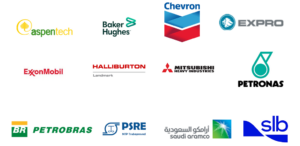This short course is your opportunity to learn from leading University of Tulsa FLOW ASSURANCE researchers and experts!
COURSE DATE: January 27-31, 2025
OBJECTIVE & OUTCOME:
The main objective of this course is to understand the basic knowledge of flow assurance. The students will be introduced to the main flow impediment issues in oil and gas production. The flow assurance issues covered in this course are:
1. Slugging types prediction, mitigation and remediation methods.
2. Highly viscous oils, emulsions and foams
3. Hydrates prediction, mitigation and remediation methods.
4. Paraffin prediction, mitigation and remediation methods.
5. Asphaltene prediction, mitigation and remediation methods.
6. Scales prediction, mitigation and remediation methods.
7. Erosion and corrosion prediction, mitigation and remediation methods.
DESCRIPTION:
This 4.5-day course describes flow assurance issues in oil-gas production systems, enhancing the participants’ knowledge base, technology awareness, and state-of-the-art flow assurance issues (prediction, mitigation and remediation).
The course begins by describing all flow assurance issues. Then, all the flow impediment issues will be discussed one by one, and the prediction, mitigation, and remediation methods will be presented.
WHO SHOULD ATTEND:
- Flow Assurance Engineers
- Production Engineers
- Reservoir Engineers
- Mechanical Engineers
- Chemical Engineers
- Petroleum Engineers
- Scientists working in Flow Assurance
TEACHING APPROACH:
Basic concepts and definitions will be introduced first to the course participants. Practical examples and field applications are used to familiarize participants with the given concepts. Design practical examples will be conducted throughout the course to expose the participants to hands-on-training, using instructors’ excel-based computer software.
DATE, TIME LOCATION (virtual attendance also available):
January 27-31, 2025 | Tulsa, Oklahoma, USA | University of Tulsa, North Campus Conference room (2450 E. Marshall Street)
4.5 days | Monday – Friday | Mon.-Thurs: 8:30 am – 5:00 pm; Friday: 8:30 am – 12:00 pm
INSTRUCTORS:
 Cem Sarica, PhD
Cem Sarica, PhD
Director of Tulsa University Fluid Flow Projects (TUFFP), F.H. “Mick” Merrelli/Cimarex Energy Professor of Petroleum Engineering, Director of Tulsa University TUHWALP & TUPDP
The University of Tulsa
More Information

Eduardo Pereyra, PhD
Associate Professor of Petroleum Engineering, College of Engineering & Natural Sciences,
Petroleum Engineering, The University of Tulsa
More Information
SHORT COURSE OUTLINE:
Introduction to Flow Assurance and Multiphase Flow
Slugging
– Slugging and Liquid Handle
– Slugging Types
– Slugging Prediction
Natural Slugging, Severe Slugging and Pigging
– Severe Slug Prevention and Mitigation
Slug Catchers, types and Design
– Real-World Practical exercises
Highly Viscous Oils, Emulsions and Foams
– Introduction to Oil-Water Flow
– Dispersions
– Emulsions
Definition
Formation in Production Systems
Prevention
Rheology
Inversion Point
– Heavy oils characterization and production methods
– Real-World Practical exercises
Hydrates
– Fundamental knowledge of hydrates
– Hydrate stability region
– Hydrate control and remediation
Amount of inhibitors injection
– Real-World Practical exercises
Paraffin
– Fundamental knowledge of paraffines
– Paraffines stability region
– Paraffines control and remediation
Asphaltene
– Fundamental knowledge of asphaltenes
– Asphaltenes stability region
– Asphaltenes control and remediation
– Real-World Practical exercises
Scales
– Produce water chemistry
– Types of scales
– Location and common scaling scenarios
– Remediation and mitigation
Erosion and corrosion
– Corrosion
Corrosion Mechanism and Influencing Factors:
Fundamental of Corrosion Prevention: Chemical Inhibition, Cathodic Protection and Protective Coatings and Plastics
– Erosion
– Effect of multiphase flow over erosion and corrosion
Level: Intermediate
Duration: 4.5 days (36 instructional hours)
Language: English
FORMAT: HYBRID (in-person or virtual attendance option available)
Material: Powerpoint slides, excel-based computer software and practical problems. Bring your laptop to use during the program.
PRE-REQUISITES: A familiarity with basic fluid mechanics and fluid properties is necessary. You should also be familiar with hydrocarbon systems vapor-liquid equilibrium and computer programming. No previous experience in two-phase flow is required.
CERTIFICATE: Upon successful completion of this course (either in-person or virtual), a signed University of Tulsa, CESE, E-Certificate of Completion will be awarded showing the professional development (non-credit PDHs) instructional hours earned.
PARTICIPANT REGISTRATION FEES & ON-LINE REGISTRATION FORMS:
TUFFP/TUPDP MEMBER Company Rates:
– $2,795/person | BEST DEAL DISCOUNT | expires 11/25/24
– $2,995/person | EARLY BIRD DISCOUNT | expires 1/6/25
– $3,495/person | Registration Fee after 1/6/25
– MEMBER COMPANY FLOW ASSURANCE COURSE REGISTRATION LINK
NON-MEMBER Company Rates:
– $3,495/person | BEST DEAL DISCOUNT | expires 11/25/24
– $3,795/person | EARLY BIRD DISCOUNT | expires 1/6/25
– $4,195/person | Registration Fee after 1/6/25
– NON-MEMBER COMPANY FLOW ASSURANCE COURSE REGISTRATION LINK
(fees listed are net US Dollars):
What is TUFFP? The Tulsa University Fluid Flow Projects (TUFFP) is a cooperative industry-university research group currently pursuing several projects simultaneously studying the effects of size and pressure upscaling and liquid viscosity on multiphase flow behavior utilizing state of the art facilities and instrumentation. Short courses on the design of two-phase flow in piping systems for oil and gas production and transportation are among the services offered by TUFFP to member and nonmember firms. Summaries of the current TUFFP projects are provided at www.tuffp.org. Current TUFFP Member Companies:

Check out the Consortia Webpage to see how your company can become a member: www.tuffp.org
Interested in bringing this short course to your company? Click here to find out how to get that process started.